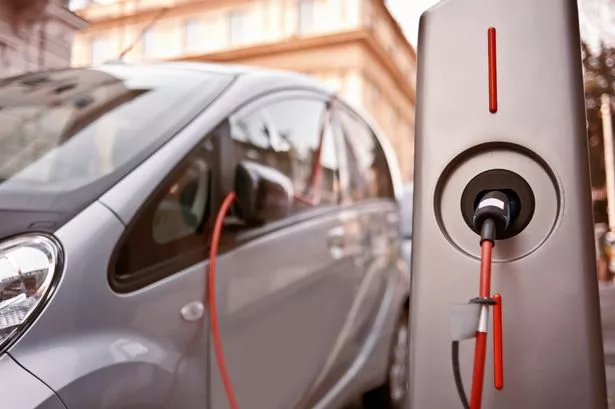Science
Allianz Warns EV Drivers of Fire Risks and Battery Hazards

A recent report from Allianz Commercial has raised alarms for electric vehicle (EV) drivers regarding significant risks associated with battery safety, particularly during charging. The “Global Risk Dialogue” report highlights potential dangers, including car fires, thermal runaway events, and the risk of toxic chemical release. The paper indicates that by the end of the decade, there could be over 200 million electric vehicles on the roads worldwide, underscoring the urgency of addressing these risks.
While the report notes that electric vehicles are not statistically more likely to catch fire than their internal combustion engine counterparts, it emphasizes other serious concerns. Rafael Rioboo, the Regional Head of Risk Consulting for Allianz Commercial’s Iberia region, stated that the most hazardous moment for an EV concerning battery risk is not during operation but rather during the charging process. He explained that issues such as overheating or short-circuiting of electric vehicle chargers can lead to battery system damage and pose significant safety threats.
Potential Hazards and Emergency Response
The Allianz report outlines the dangers of “thermal runaway,” a phenomenon where batteries can overheat uncontrollably, potentially leading to fires and explosions. Rioboo emphasized that thermal runaway does not allow for a delay in response; it can escalate rapidly, resulting in the release of heavy metals and toxic chemicals such as carbon monoxide and hydrogen cyanide. These events pose serious risks not only to individuals and property but also to emergency responders who may be managing incidents involving EVs.
In addition to the risks posed during charging, police forces are developing protocols to mitigate dangers associated with EVs post-collision. The report indicates that authorities are isolating vehicles and implementing strategies to handle “post-crash battery hazards” effectively.
Colin Walker, head of transport at the Energy and Climate Intelligence Unit, acknowledged the report’s findings but pointed out that all available data indicates EVs are significantly less likely to ignite compared to traditional petrol or diesel vehicles. He noted that many incidents involving internal combustion engine vehicles often go unreported, contributing to a distorted perception of fire risks.
Expert Insights on Battery Safety
Paul Christensen, a professor of pure and applied electrochemistry at Newcastle University, has been studying battery technology and its implications for safety. He warned of the potential for “vapour cloud explosions and rocket flames” when gases escape from battery cells under certain conditions. His research supports the need for heightened awareness and improved safety measures in the growing EV sector.
As the adoption of electric vehicles continues to rise, the insights from the Allianz report stress the importance of addressing these risks proactively. While the benefits of EVs in reducing emissions and promoting sustainable transportation are clear, ensuring the safety of drivers and emergency responders is crucial as the industry evolves.
The information presented by Allianz serves as a pertinent reminder for EV owners to remain vigilant and informed about the potential hazards associated with their vehicles, particularly during charging operations.
-

 Health3 months ago
Health3 months agoNeurologist Warns Excessive Use of Supplements Can Harm Brain
-

 Health3 months ago
Health3 months agoFiona Phillips’ Husband Shares Heartfelt Update on Her Alzheimer’s Journey
-

 Science2 months ago
Science2 months agoBrian Cox Addresses Claims of Alien Probe in 3I/ATLAS Discovery
-

 Science2 months ago
Science2 months agoNASA Investigates Unusual Comet 3I/ATLAS; New Findings Emerge
-

 Science1 month ago
Science1 month agoScientists Examine 3I/ATLAS: Alien Artifact or Cosmic Oddity?
-

 Entertainment5 months ago
Entertainment5 months agoKerry Katona Discusses Future Baby Plans and Brian McFadden’s Wedding
-

 Science1 month ago
Science1 month agoNASA Investigates Speedy Object 3I/ATLAS, Sparking Speculation
-

 Entertainment2 months ago
Entertainment2 months agoLewis Cope Addresses Accusations of Dance Training Advantage
-

 Entertainment4 months ago
Entertainment4 months agoEmmerdale Faces Tension as Dylan and April’s Lives Hang in the Balance
-

 World3 months ago
World3 months agoCole Palmer’s Cryptic Message to Kobbie Mainoo Following Loan Talks
-

 Science1 month ago
Science1 month agoNASA Scientists Explore Origins of 3I/ATLAS, a Fast-Moving Visitor
-

 Entertainment4 months ago
Entertainment4 months agoMajor Cast Changes at Coronation Street: Exits and Returns in 2025









